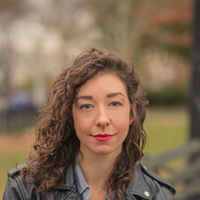I Soft-Launched My Bisexuality During the Pandemic
Years later, one writer reflects on what it was like to share her identity with others while in isolation—and what happened next.
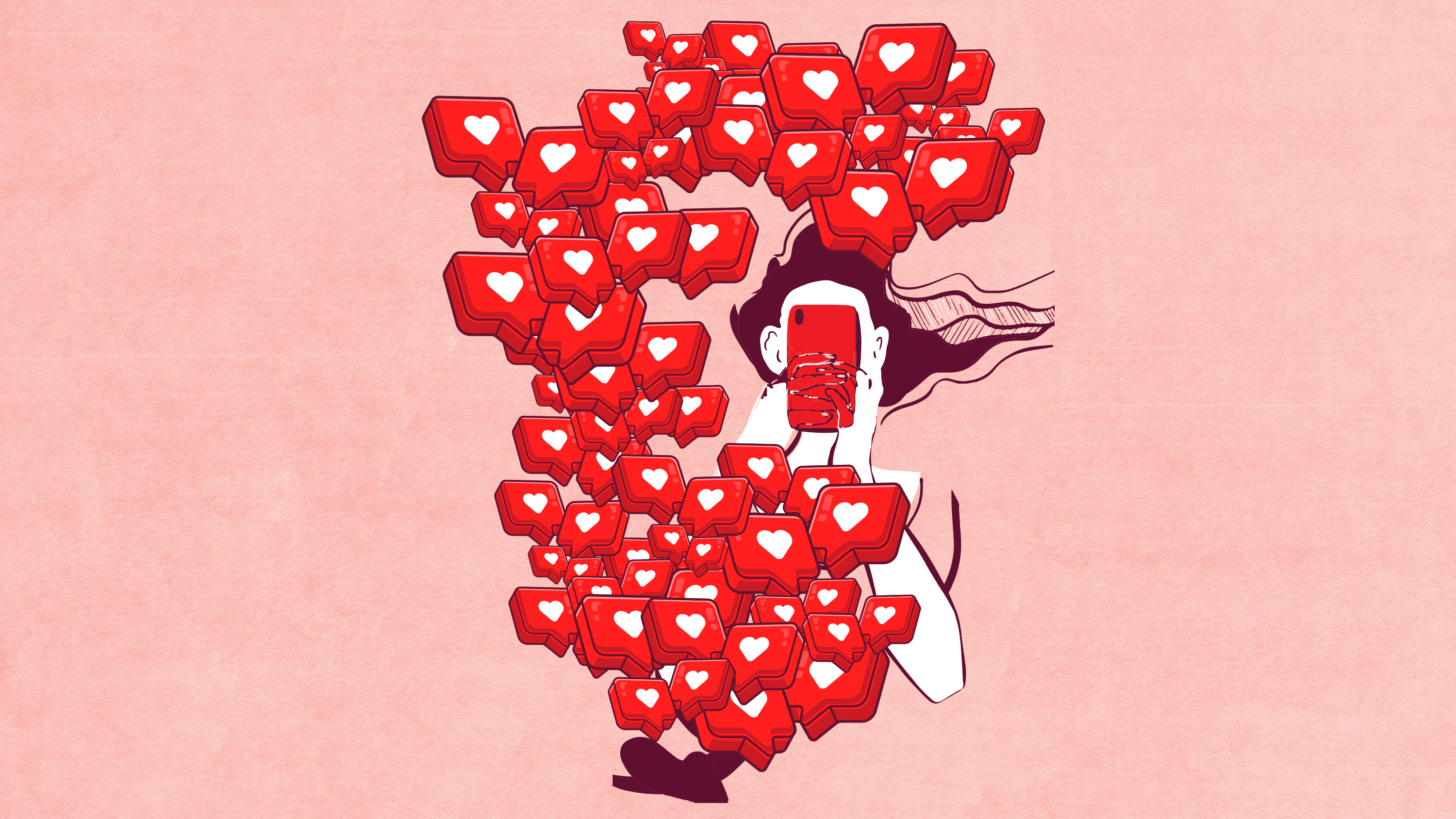
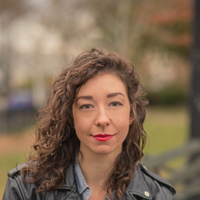
On October 25, 2020, my finger hovered over Instagram’s Post button. I was about to share a series of selfies I’d taken with Julia, the woman I’d begun dating a couple months earlier—in them, we were on her rooftop, our faces close together, cracking up as we failed to center ourselves in the frame.
I’d told a few close friends about her. The rest of the world had no idea about her existence; no idea I was attracted to women, period. Among my 8,000 or so Instagram followers: my conservative parents, religious family, professional contacts, friends from all walks of life, strangers who followed me after reading my thriller books. The caption wasn’t a heartfelt Coming Out. It didn’t even identify Julia as my girlfriend (“Bad at selfies,” it read, because self-deprecation is my defense mechanism.) Still, our intimacy was obvious; people would know, or at least suspect, the truth. I hesitated, aware that this one casual Instagram could forever change how people think of me.
Then I hit Post, flung my phone face-down on my bed, and vowed not to check it for the rest of the day. I’m 36 years old and I’ve lived in New York City all of my adult life—two elements that make a this-late-in-life revelation unusual, if not unbelievable to some people. I had my first serious boyfriend two decades ago; through college, my 20s, and the first half of my 30s, I identified as straight. I couldn’t possibly be queer, I figured, since I was attracted to men.
It really did seem that simple. I grew up in a conservative Lutheran church where the pastor once used his Christmas Eve service to rail against society’s acceptance of homosexuality. As a kid, I had pinups of Jonathan Taylor Thomas and Devon Sawa on my wall, and as a teenager I joined my friends in lusting after Jude Law and Will Smith. So I ignored all the signs that my sexuality might not be so cut-and-dry: the fact that I had crushes on women as well as men, my inexplicable fascination with a group of gorgeous actresses who all looked alike, sexual fantasies with nary a penis present. Wasn’t that “normal”? Isn’t it practically a cliché for straight women to prefer lesbian porn?
So I continued to date men. Years ago, I opened up to my therapist about yet another crush I’d developed on a woman: I was scared to act on it because, without any past experience, I might inadvertently “lead her on” only to eventually, hypothetically, decide I wanted to be with a man.
“So you’re afraid that after getting to know someone and dating for a little while, you might want to end it, and that’s unfair to them,” she paraphrased back. I nodded. She tilted her head. “Isn’t that just…dating?”
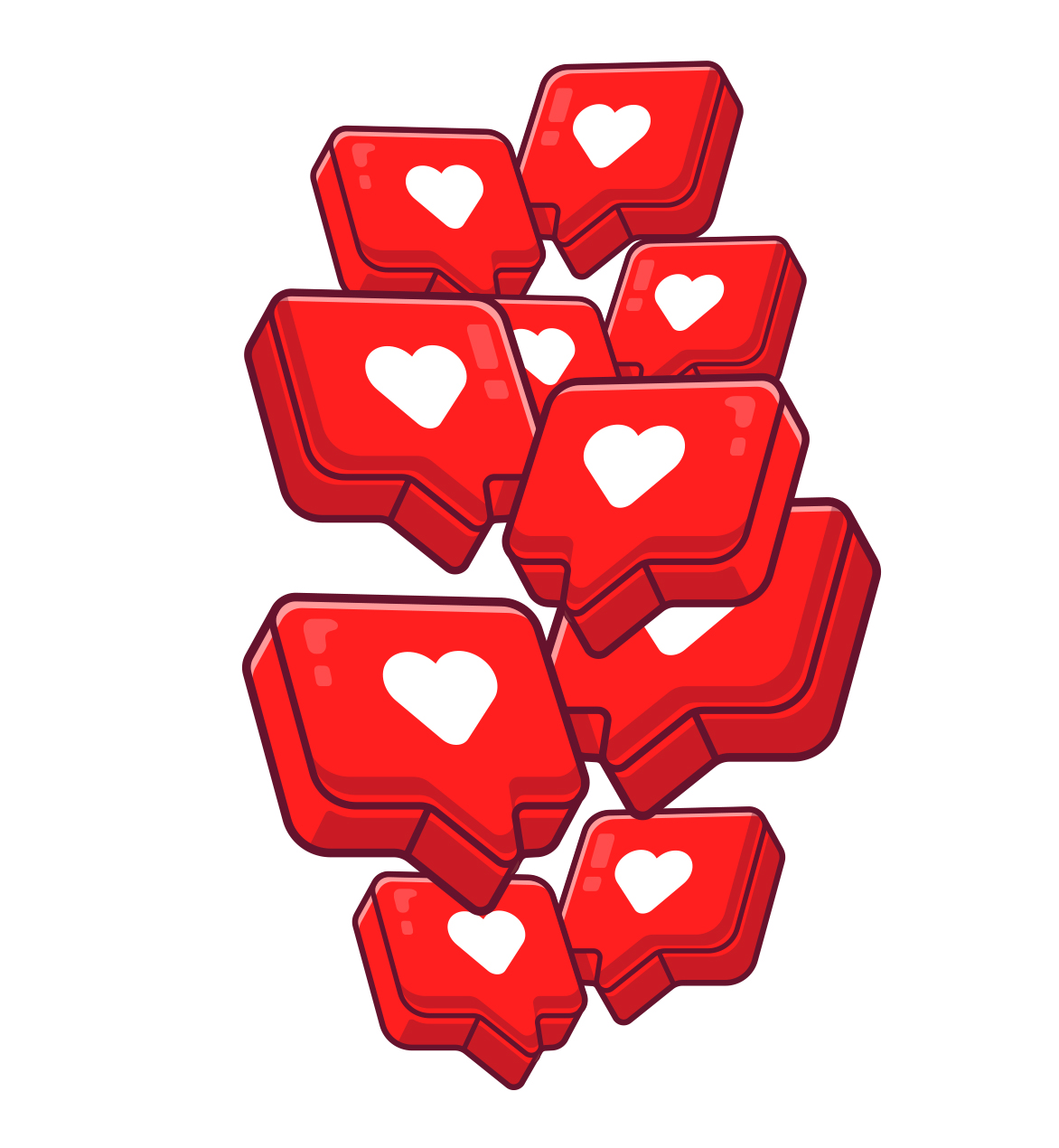
She was right. Which I knew then. But it was another two years before I found the courage to sit across from a woman, two beers on the table between us, trying to decide if the spark was there.
Get exclusive access to fashion and beauty trends, hot-off-the-press celebrity news, and more.
The catalyst, ironically, was a tragic and horrifying global pandemic—an upending of all the rules, when our mores and housing situations and lives were all tossed into a blender. In early 2020, lonely in my studio apartment, I packed a suitcase and moved in with a friend and her family near Washington, DC—“for a couple weeks,” I assured them, before staying for five months.
I saw my therapist via Zoom and she listened to me cry about having to put mate-seeking on hold in my mid-30s. All my close friends were getting married, having kids. I already felt like the unsporty kid picked last for the baseball team. And then the whole season was called off! The injustice.
“You’re 15 minutes from a big city and you can meet people outdoors,” she said. “Why not go on a few dates? If nothing else, it’ll be good fodder for therapy.”
So I reinstalled Hinge. After a moment’s hesitation, I set it to show me both men and women. I went on exactly one first date, with Julia, and the rest is history.
I’m sure geography had something to do with it, the fact that I could clarify in my profile that I was still paying rent in New York City. Hey, no one can accuse me of wasting their time or leading them on! But more importantly, I already felt like my identity was in flux, devoid of its usual constellation of people, places, and things. I was an author who couldn’t promote her new book. A friend hundreds of miles from her closest buds. A daughter who hadn’t been home since mid-2019. Why not finally take the leap and shake up this part of my self-image, too?
I was terrified, of course. First I stopped replying to Julia’s messages on the app, only to reemerge weeks later on a fresh surge of bravery. Then, the day of our date, my heart hammered in my chest the entire drive to the restaurant where we were meeting. But the panic mellowed as we drained our drinks and the afternoon shadows stretched across the patio. I tipsily texted a friend on the cab ride home: I just had the best date!!! I was giddy and energized, exactly the way I felt after any promising meet-up.
I never came out. I simply fell in love with Julia and figured others would get the memo when they got the memo. People interpreted my selfies however they wanted. I’m sure some text threads among my contacts lit up with speculation, but hey, I didn’t have to hear about it. My friends were supportive, if, as they later admitted, a bit bewildered. My parents took longer to get used to it, but they had plenty of time and space to handle the news on their own.
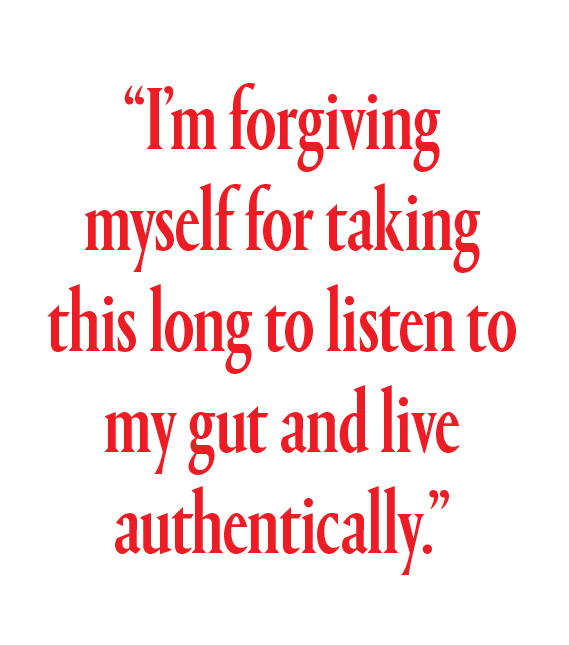
Perhaps part of why I soft-launched my relationship (and, in turn, my sexual orientation) is that I was worried about people raising their eyebrows, so I wanted to keep everyone else out of it. Like every couple in a new relationship, Julia and I formed our own blissful cocoon, blocking out the world as we fell harder and harder. In fact, with big gatherings still verboten and casual dating still risky business, we leaped right over the zingy period where you dress up and see each other for sexy dates a couple times a week and fast-forwarded to the part where we spent weeks together, wearing sweatpants and trying recipes and binge-watching the latest Netflix hit.
In many ways, it was scary to uncover a new part of my identity in my 30s, and I feel less entitled to call myself part of the queer community. I didn’t come out as an awkward teen or face overt homophobia. And with the world on lockdown, I couldn’t join queer bowling leagues or celebrate Pride weekend with scores of LGBTQ+ folks. My partner describes coming out in her early 20s and finding her closest friends—and her identity—in DC’s queer scene. But for me, that ship has sailed: I already have my chosen family, primarily straight women, many of whom now have husbands and kids. They’re on the path I thought my life would take. And it’s weird, unmooring, to be switching lanes when I otherwise know myself so well.
My new novel, The Spare Room, stars a 30-something who recognizes her own bisexuality in the isolated enclave of lockdown, and through her, I worked through some of my own bafflement, self-doubt, and eventual acceptance. (Then she gets sucked into the betrayals, lies, and secrets of the couple she’s fallen in love with, because it’s a thriller—but the coming-out stuff is semi-autobiographical.) My heroine grieves the loss of her certitude that life would wind like a river into the American ideal, and I feel that: it’s alarming to wake up and realize that the images pasted on your vision board aren’t totally your own.
For so long I thought my happy ending would be me posing in a yard with two gorgeous children and my tall, handsome husband, a big house behind us and a nice car out front, two-dimensional perfection for all the world to see, she muses. But did I ever really want that? Or did I accept the only future that was available to me as a kid growing up in Libertyville, the ultimate M.A.S.H.-game prophecy hanging low like a ticket at a deli counter?
I’m still figuring that out, and accepting that I can never totally disentangle my dreams from society’s expectations. I’m forgiving myself for taking this long to listen to my gut and live authentically. The Spare Room opens with a dedication: For everyone who rethought everything. I know I’m not alone in suddenly realizing my life didn’t have to be what I thought it was—and I hope everyone else is lucky enough to have that awakening, too.
The Spare Room, which hits shelves June 20, 2023, is available to buy now.
Andi Bartz's debut thriller THE LOST NIGHT received starred reviews from Library Journal and Booklist and was optioned for TV by Mila Kunis and Cartel Entertainment. Her second novel, THE HERD, was named a best book of 2020 by Real Simple, Marie Claire, Good Housekeeping, and CrimeReads. Her third thriller, WE WERE NEVER HERE, was a Reese’s Book Club pick and an instant New York Times bestseller; it’s in development at Netflix. Her fourth book, THE SPARE ROOM, was a GMA Bonus Buzz Pick, a Marie Claire book club pick, and a best book of summer per People, Shondaland, Glamour, Elle, Harper’s Bazaar, and more.
Bartz's most recent thriller, THE LAST FERRY OUT, has been praised by ELLE, Marie Claire, Cosmopolitan, and more. She also publishes the Substack Get It Write.
